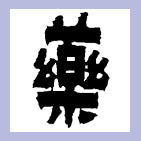An Analysis and Treatment of Irregular Menstruation from the Perspective of Traditional Chinese Medicine
Irregular menstruation, a common gynecological condition, refers to a series of symptoms involving abnormalities in menstrual cycle length, duration, and flow. According to traditional Chinese medicine (TCM) theory, the causes of irregular menstruation are complex and diverse, primarily including liver qi stagnation, spleen qi deficiency, kidney qi insufficiency, phlegm-dampness obstruction, cold coagulation and blood stasis, as well as heat disturbing the Chong and Ren meridians. These factors directly or indirectly impair the functions of the Chong and Ren meridians, Du and Dai meridians, as well as the uterus and its associated vessels, leading to menstrual disorders.
I. TCM Analysis of the Causes of Irregular Menstruation
- Liver Qi Stagnation: Emotional depression or long-term mental stimulation can lead to liver qi stagnation, affecting blood and qi circulation, and disrupting the balance of the Chong and Ren meridians, thereby triggering irregular menstruation. Patients often experience breast tenderness and emotional instability.
- Spleen Qi Deficiency: Overexertion, improper diet, or excessive worrying can damage spleen qi, resulting in insufficient qi and blood production, an empty blood sea, and delayed or insufficient menstruation.
- Kidney Qi Insufficiency: Insufficient kidney qi in young individuals, gradual decline of kidney qi before menopause, multiple childbirths or sexual activity, or prolonged illness can all lead to weakened kidney qi and an unstable Chong and Ren meridians, causing early or delayed menstruation, or even amenorrhea.
- Phlegm-Dampness Obstruction: Obesity, improper diet, or excessive intake of fatty and sweet foods can damage spleen qi, leading to the internal generation of phlegm-dampness, which descends to block the Chong and Ren meridians, impeding blood circulation, and causing delayed menstruation.
- Cold Coagulation and Blood Stasis: Constitutional yang deficiency or prolonged illness damaging yang can lead to internal cold and insufficient blood and qi production, delaying the filling of the blood sea and menstrual cycle. External exposure to cold pathogens or excessive consumption of cold foods during menstruation or postpartum can cause blood to coagulate due to cold, obstructing the Chong and Ren meridians, and delaying menstruation.
- Heat Disturbing the Chong and Ren Meridians: Yin deficiency with blood heat, yang excess with blood heat, or liver qi stagnation with blood heat can all lead to heat disturbing the Chong and Ren meridians, forcing blood to flow abnormally, and causing early menstruation.
II. TCM Diagnosis of Irregular Menstruation
TCM diagnosis of irregular menstruation primarily relies on menstrual cycle length, menstrual volume, menstrual color, and consistency. Through the four diagnostic methods of inspection, auscultation and olfaction, inquiry, and palpation, combined with the patient's overall symptoms, a syndrome differentiation and treatment plan is formulated. For example, a disrupted menstrual cycle may be caused by liver qi stagnation; a shortened menstrual cycle may indicate qi and blood deficiency; increased menstrual volume may be due to blood heat forcing blood to flow abnormally; and decreased menstrual volume may be caused by kidney yang deficiency.
III. TCM Treatment Methods for Irregular Menstruation
- Chinese Herbal Medicine: Based on syndrome differentiation, different herbal formulas are selected. For example, Bazhen Tang or Wuji Baifeng Wan can be used for qi and blood deficiency; Xiaoyao Wan or Jiawei Xiaoyao Wan for liver qi stagnation; Guizhi Fuling Capsules or Yimucao Granules for blood stasis obstruction; and Liuwei Dihuang Wan or Guifu Dihuang Wan for kidney deficiency.
- Acupuncture Therapy: By stimulating specific meridians and acupuncture points, such as Hegu (LI4), Sanyinjiao (SP6), and Qihai (CV6), acupuncture regulates internal qi and blood, improving irregular menstruation symptoms.
- Dietary Adjustments: Incorporating iron-rich and nutritious foods, such as red dates, longans, and black sesame seeds, into the diet can help improve qi and blood deficiency. Avoid cold and stimulating foods.
- Lifestyle Adjustments: Maintain a regular schedule, avoiding staying up late and overexertion. Engage in moderate exercise and maintain a good mindset.
- Tuina Massage: Massaging specific areas of the abdomen and waist can promote blood circulation, relieve menstrual pain, and regulate the menstrual cycle.
IV. Conclusion
Irregular menstruation is a complex condition. TCM treatment emphasizes syndrome differentiation and individualized treatment plans, selecting appropriate treatment methods based on patients' different syndromes. In addition to pharmacological treatment, dietary and lifestyle adjustments should also be incorporated for optimal treatment outcomes. Meanwhile, patients are advised to seek medical attention promptly, obtain a definitive diagnosis, and undergo targeted treatment under medical guidance.
